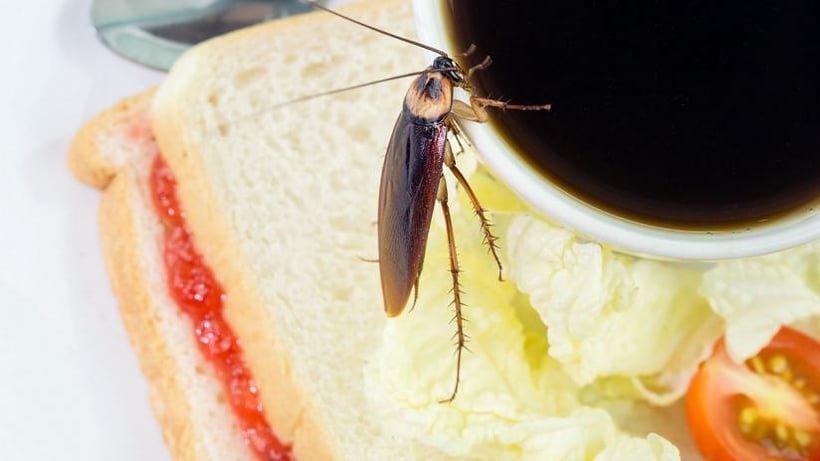
No one wants to see a cockroach scuttling across the floor of a food business. These universally despised insects are not only unsightly, but they can pose significant food safety risks as well.
Cockroaches carry diseases that can be transmitted to humans, including gastroenteritis (e.g. food poisoning, diarrhoea), dysentery, cholera, typhoid fever, salmonellosis and E. coli infection.
Their diet consists of garbage, faeces, crumbs and other food scraps. When they travel from garbage bins or sewers into businesses looking for food, they bring pathogens with them. They cause cross-contamination when they track harmful microorganisms around the business, and across surfaces such as clean dishware.
Because they breed so quickly and can flatten their bodies to hide nearly anywhere, cockroaches are extremely difficult to get rid of. A cockroach infestation can result in health inspection violations, damaged reputation and less revenue — not to mention the added costs of eliminating a pest problem.
To help prevent infestation and keep customers safe, everyone in the food business should be trained in pest control procedures and how to spot the signs of cockroaches.
How to prevent cockroaches from getting into your business
It’s far easier to prevent cockroaches from entering the food business than having to eradicate a cockroach infestation. Cockroaches look for warm, damp shelter that’s near food and water. Unsanitary or messy places can provide ideal conditions for them to thrive, so food businesses must prioritise:
- Proper storage practices: Store food in tightly sealed containers at least six inches from the ground and two inches from the walls. Make sure containers don’t have cracks or other entry points. Use white painter’s tape around the edge of the floor to remind employees not to store food against walls and to make it easier to see signs of pests.
- Effective waste control: Remove garbage from the premises frequently and ensure it’s collected regularly. Line indoor containers with plastic bags, and clean and sanitise garbage and recycling bins frequently.
- Proper sanitation procedures: Cut off cockroaches’ access to food by cleaning and sanitising food contact surfaces, utensils and equipment at least once a day, and removing grease or food residues from equipment regularly. Implement a cleaning schedule to ensure nothing gets missed.
Look for the signs of cockroach infestation
Food businesses should monitor for signs of cockroach or other pest infestations regularly. Other than seeing the insect itself, other signs are brown, oval-shaped droppings that sometimes look like coffee grounds. Oval-shaped egg cases and a strong oily or musty smell can also indicate a cockroach problem.
If you spot a cockroach, you must act immediately to control and eradicate the infestation.
How to handle a cockroach infestation
If it’s too late to prevent an infestation, implementing these methods immediately can help eradicate cockroaches from the business:
- Traps: Because traps such as glue boards don’t contain poison, there’s no risk of chemical contamination if you use them in your food businesses. But they only trap a few cockroaches at a time, so they may not be all that effective in eliminating an infestation.
- Poisonous bait: Baiting is designed to lure cockroaches toward a poison, e.g. a gel, containing a delayed-action insecticide, which cockroaches ingest and spread through the colony. Baiting is an effective control method, but risks of chemical contamination means this method should be used carefully in a commercial kitchen.
- Sprays: Proceed with caution when using sprays. Though they can directly exterminate visible cockroaches, they can cause chemical contamination if they’re used in an environment where food is stored, prepared or served. If you must use sprays, only do so when the kitchen is not in use, and move any utensils or equipment out of the way first. Always clean and sanitise the area afterwards.
The Australian Institute of Food Safety (AIFS) provides comprehensive training and tools to help food businesses prevent potential food safety issues before they arise. Use our Guide to Pest Prevention and Control to better understand the risks of cockroaches and other pests infesting your business, and gain helpful tips for pest prevention and safe eradication.




